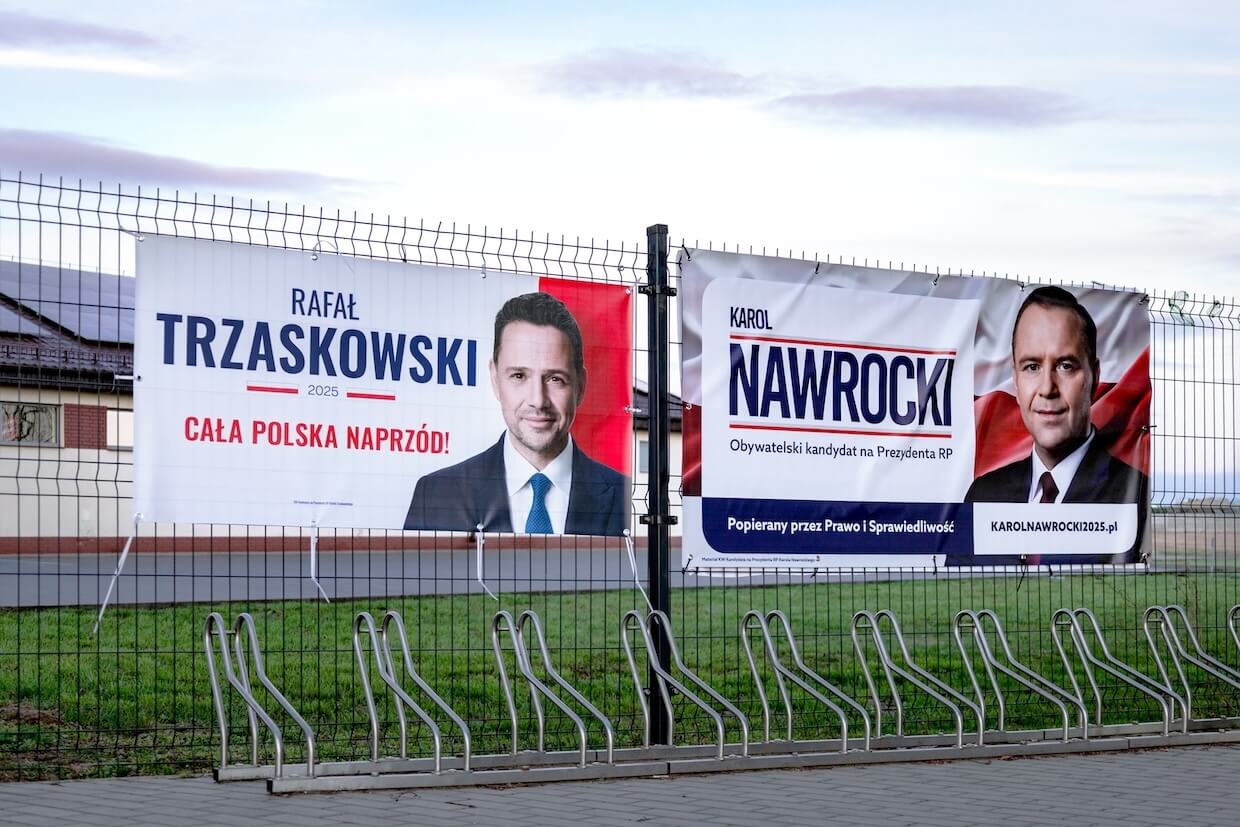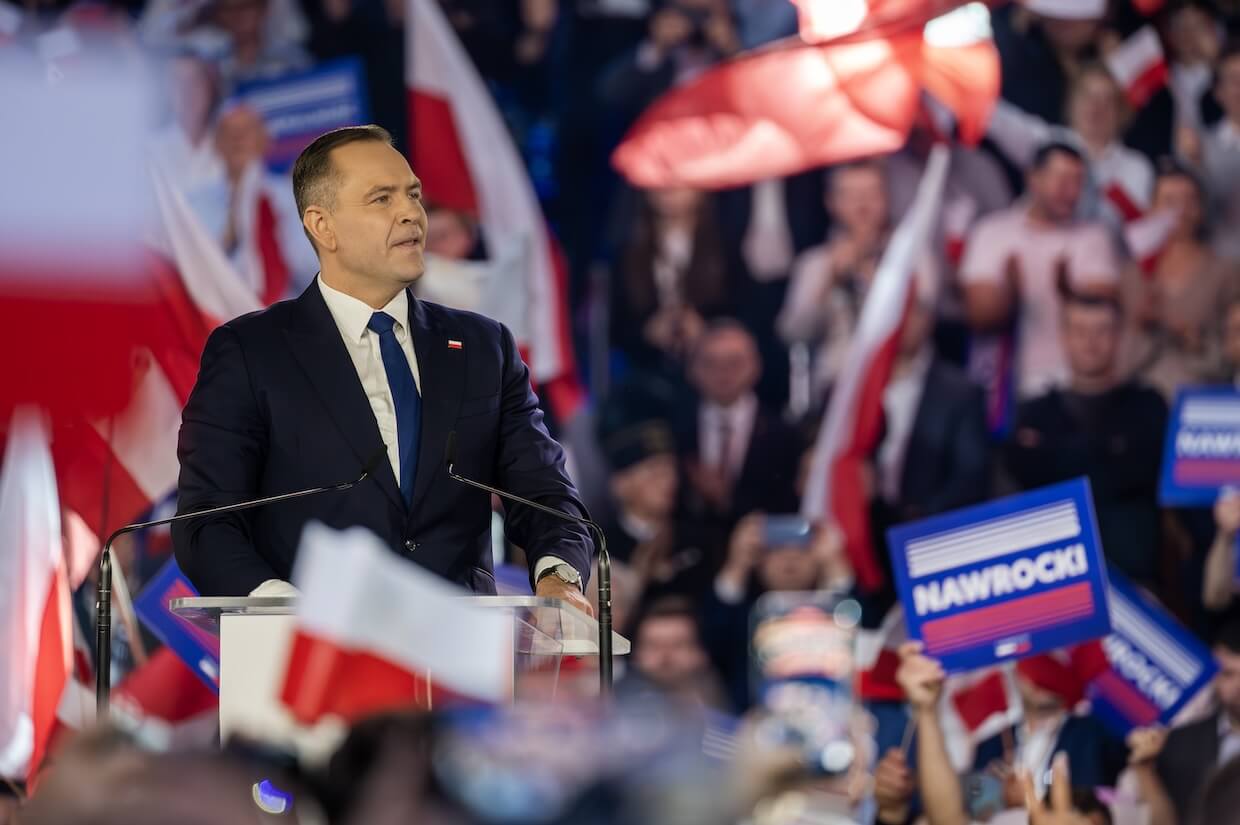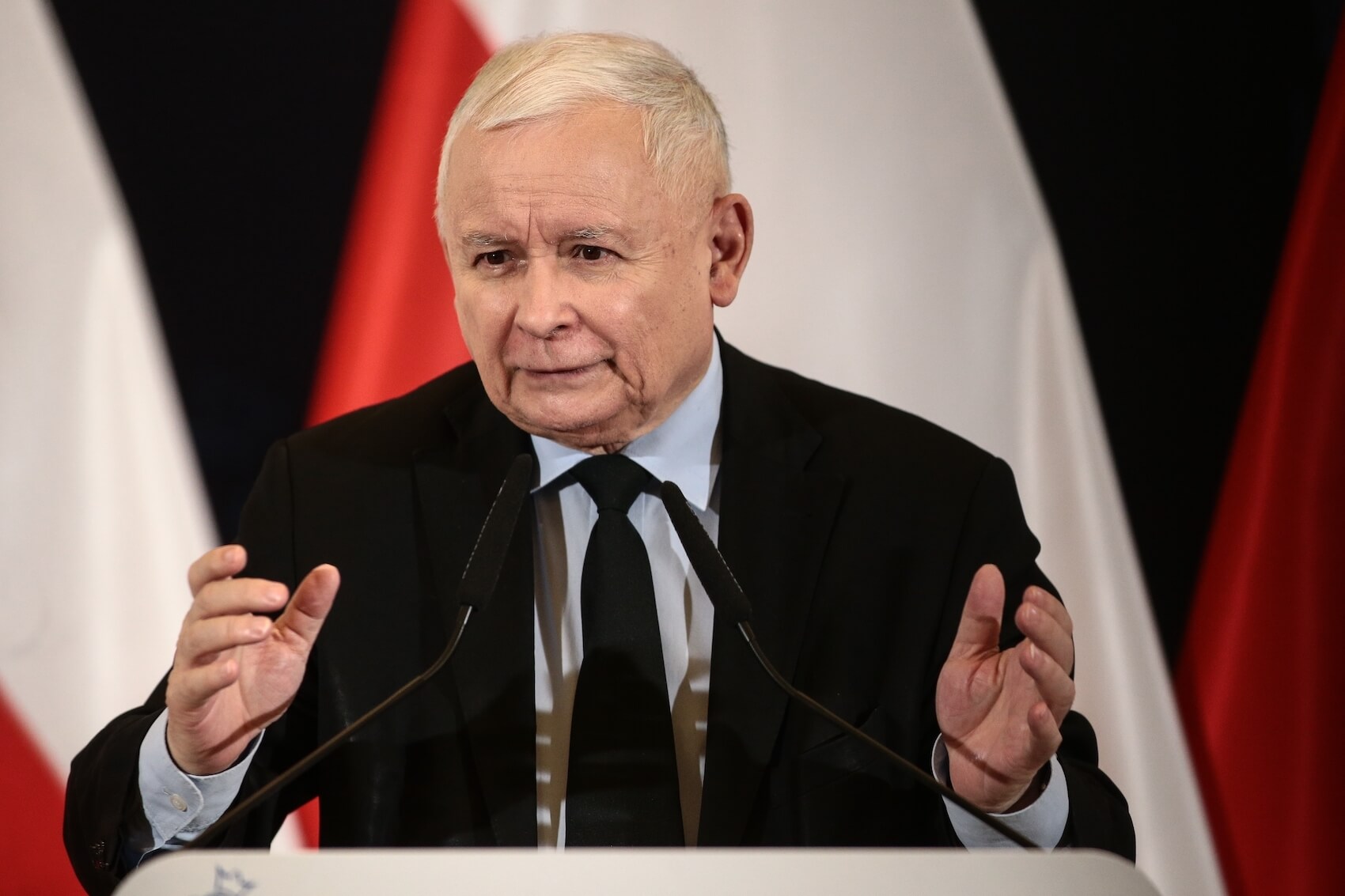In this compelling interview, Professor Rafal Soborski critiques Poland’s liberal democratic actors for mimicking right-wing rhetoric in a failed attempt to broaden appeal. “Shifting right doesn’t win over the right—it alienates the left,” he warns, urging pro-democratic forces to adopt bold, progressive agendas rooted in class justice and social solidarity. Drawing comparisons to political centrists across Europe, Soborski emphasizes that ideological clarity—not cautious managerialism—is key to countering the far right’s emotional narratives and mobilizing mythologies. His insights offer a timely call for a renewed progressive vision amid the turbulent political landscape in Poland and beyond.
Interview by Selcuk Gultasli
In a wide-ranging interview with the European Center for Populism Studies (ECPS), Professor Rafal Soborski offers a trenchant critique of the Polish liberal democratic actors’ strategic missteps in the recent presidential election, arguing that centrist attempts to mimic the right not only fail to capture conservative voters but also alienate the progressive base. “Shifting right doesn’t win over the right—it alienates the left,” he asserts, summarizing what he sees as a recurring failure of liberal parties not only in Poland but across much of Europe.
Professor Soborski, who teaches International Politics at Richmond American University and serves as a Senior Research Fellow at the Global Diversities and Inequalities Research Centre at London Metropolitan University, situates this analysis within a broader critique of what he calls “managerial centrism.” For him, this style of governance—technocratic, uninspiring, and devoid of ideological ambition—has become a default mode for centrist parties. “Even when the center wins elections, it then limits itself in office to this very managerialism… without a compelling vision of its own,” he explains.
This was evident in the performance of Civic Platform’s candidate, Rafał Trzaskowski, who lost narrowly to the nationalist Karol Nawrocki in a deeply polarized race in Poland. Rather than galvanizing progressive voters with bold policies, Trzaskowski, Professor Soborski suggests, hedged his ideological bets and made symbolic missteps that demoralized key constituencies. “I don’t think he convinced anyone by hiding the rainbow flag handed to him by Nawrocki during one of the debates,” Professor Soborski notes. “This alienated many people on the left… while not convincing anyone on the right.”
In his view, such political positioning reflects a deeper failure to recognize the need for ideological clarity and courage. Drawing comparisons to Germany’s Olaf Scholz and Britain’s Keir Starmer, Professor Soborski warns that when liberal parties attempt to neutralize far-right narratives by parroting them, they lose both authenticity and voter trust. “It tends to mimic instead the narratives of the right,” he laments.
For Professor Soborski, the path forward lies not in cautious centrism but in a reinvigoration of progressive values—rooted in social justice, pro-Europeanism, and recognition of class dynamics. “I would like to see pro-democratic forces in Poland challenging the right,” he concludes, “rather than hoping in vain that they can occupy some of the right’s discursive territory.”
This interview reveals not only the ideological contours of Poland’s political battleground but also the urgent need for liberal democratic actors to rethink their strategy before the far right consolidates its recent gains.
Here is the lightly edited transcript of the interview with Professor Rafal Soborski.
Populism Is a Style, Not an Ideology

Professor Rafal Soborski, thank you very much for joining our interview series. Let me start right away with the first question. You’ve argued that populism lacks ideological coherence. How would you categorize Karol Nawrocki’s brand of politics—Trumpian, nationalist, anti-liberal—within your broader critique of the term ‘populism’?
Professor Rafal Soborski: I don’t think mine is a critique of the term populism as such.
But instead, what I would argue—and I am, of course, far from being original here—is that approaching populism as an ideology, even a thin one, is misguided. Incidentally, the author to whom we owe the concept of thin-centered ideology, Michael Freeden, does not think populism qualifies as one, so it doesn’t qualify as a worldview. According to Freeden, thin-centered ideologies have a restricted conceptual core, a restricted range of concepts, and hence need broader, more mature ideologies, such as liberalism or socialism, to serve as their hosts. But the thin-centered ideologies are still more complex than populism. So think of nationalism, feminism, perhaps ecology.
On the other hand, populism revolves merely around the opposition between the decent people and the corrupted elite, and this is not enough to construct a worldview that any ideology is expected to offer. Of course, you can further distinguish between right-wing populism, left-wing populism, and so on. But such distinctions often reveal that populism does not really make much sense as an ideological category. So both Donald Trump and Bernie Sanders have been described as populists, but their views are dramatically different.
During the pandemic, I analyzed approaches to COVID-19 that others had categorized as populist, and I showed that there was no consistent pattern or any general similarities in terms of the track record—in terms of the success or otherwise—of so-called populist policies, and that, in fact, the major factor was the degree of neoliberalization. So, I think it is better to keep populism as a description of the type of political communication—the style of political communication—and perhaps also the convention-breaking behavior of some politicians, including dressing down, swearing, smoking—in the case of Nawrocki, sniffing snus during TV debates with Trzaskowski.
But the populist manner may carry very different ideological and political messages, and in that sense it may be better to speak of populist nationalism or populist socialism rather than vice versa—rather than socialist populism. Populism then becomes just a description of the style in which a given ideology is conveyed.
As for Nawrocki, I think all of the adjectives that you have mentioned—Trumpian, nationalist, anti-liberal—could potentially apply, for of course they are different categories.
Trumpism seems to have an obvious meaning. It’s a blend of hostile grievances against all kinds of minorities and some pernicious establishment—which is, of course, ironic, considering Trump’s own status—and Trumpism is expressed more as ephemeral sound bites than coherent ideas. We’ve become used to that with Donald Trump. Trump is also associated with political transactionism, bringing his personal monetary interest quite unashamedly into politics, which also affects what he says and how he says it. So it remains to be seen if Nawrocki tries to emulate this.
Is Nawrocki a nationalist? Certainly. And it is a nationalism that thrives on and stirs up collective fears and collective resentment in a volatile world whose complexities this kind of nationalism oversimplifies.
Anti-liberal? Well, absolutely. However, I think we need to be fair and wait and see who Nawrocki turns out to be ideologically when in office.
We need to remember that until he was selected by Jarosław Kaczyński as an ostensibly nonpartisan candidate—but really the candidate of Law and Justice (PiS)—he had been almost a complete unknown to the wider public. So I think we need to wait and see what happens.
Ideological Balkanization and the Far Right’s Mythmaking Machine
You’ve called for taking ideology seriously in times of crisis. What ideological threads—beyond vague populism—do you see underpinning Nawrocki’s support base and discourse?
Professor Rafal Soborski: Thank you for this question. Yes, I think political ideology should be taken seriously, and I discussed this in my work. For years, however, ideology has undergone a radical transformation, becoming increasingly fragmented, fluid, ephemeral,
reacting haphazardly to rapid social and political changes. So, traditional left-right distinctions have blurred. They have given way to hybrid belief systems and situational politics, featuring often contradictory positions depending on the issue at hand, emerging at any moment. Of course, social media have accelerated this shift as well, favoring meme-driven and personality-centered politics over more durable, collectively held ideological commitments. And, comprehensive worldviews are losing ground to issue-based activism, identity politics, and also algorithmically reinforced echo chambers. So, ideology has changed, and far-right politics provides a particularly revealing lens through which to analyze ongoing ideological transformations.
The far right today combines elements of nationalism, traditionalism, libertarianism, conspiracism, accelerationism—you name it—into an unstable and contradictory but potent political force. The far right also engages in constructing and mobilizing its followers around myths—political myths of civilizational decline, national betrayal, or demographic apocalypse. It offers emotionally charged narratives of victimization and redemption. So, for example, “the Great Replacement” myth frames migration as an existential threat to the West; “the Deep State” conspiracy envisions elites orchestrating some global control or takeover. The far right relies on such narratives, positing a moralized struggle between the people and their perceived enemies, and seems to be capitalizing on the fears that these cause.
Overall, I think what we witness is ideological Balkanization—adherence to tribalism over universalism, feeling over reasoning—and it’s going in that direction. But this does not mean that we should be paying less attention to these fragmented new forms of ideology. Ideology scholars should really be exploring ideology in its different expressions, whether they are sophisticated and structured, or crass and fleeting. For better or worse, this is how we tend to think politically today, and we should be studying this.
However, coming back to Nawrocki, I think it is likely that he will be blending different ideological themes, and it seems certain to me that it will be a narrative mobilizing collective exclusionary emotions over reasoning. But still, as I said earlier, I think we need to wait and see. His political communication thus far has been subject to the pressures of electoral competition much more than it will be when he’s in office, with at least five years of presidency ahead of him. Perhaps he will continue this kind of discourse, or perhaps he will change. We’ll see.
The Far Right Has a Base and a Superstructure—But No Real International

How does Nawrocki’s alignment with Trumpism reflect broader transnational ideological flows between far-right actors across the Atlantic? Are we seeing a global ideological bloc emerging?
Professor Rafal Soborski: That’s a great question. Far-right ideologies take increasingly transnational forms. This includes the emergence of different forms of civilizationism, variously aligning with or transcending nationalism or racism. So, with my colleagues at London Metropolitan University, Professor Michał Garapich and Dr. Anna Jochymek, we’ve been working on a project funded by the UK’s Economic and Social Research Council, studying the emerging transnational Polish-British far right. And we see a significant number of Polish migrants in Britain recruited by British far-right organizations. We also see British far-right leaders and activists visiting Poland, for example, to take part in the Polish Independence March on 11/11, which is probably the world’s largest transnational far-right hub, as well as a symbolic space for the reproduction of political myths.
Far-right cooperation is fast becoming both a matter of ideological synergy and financial benefit. Far-right influencers play an increasingly important role, and there is money around them. So, for example, one Polish-British far-right PR expert has been behind the rightward shift of Elon Musk, and both have promoted the staunchly pro-Israeli, Islamophobic far-right influencer Tommy Robinson.
So, in that sense, I think an ideological bloc has already emerged, and this far right of today does have both its base and its superstructure, using Marxian terminology. But having said all that, far-right nationalism’s logic is not really given to cooperation—to put this mildly—and as we know from history. So, I anticipate all kinds of tensions, potentially conflicts emerging, and I don’t think that a robust, coherent far-right international is likely in that sense.
Populist Nationalism Thrives on Imagined Enemies And PiS Knows This Well
With Nawrocki now positioned to veto progressive reforms by Tusk’s government, are we witnessing a new phase of institutional gridlock engineered by ideological confrontation between liberalism and authoritarian conservatism?
Professor Rafal Soborski: I think this is highly likely. But I don’t think, to be honest, that Tusk’s government would have done much, even with a president from its own side. The coalition is too divided on social issues and has been, I have to say this with regret, highly ineffective. And Tusk’s party itself is really right-wing—I mean, by Western standards. This is a neoliberal/neoconservative party. It resembles the Tories under Cameron before their shift in a far-right direction. So, yes, but I don’t think that it would be a very dramatic change in relation to what we have.
Do you foresee PiS leveraging the presidency to engineer a strategic comeback in 2027, thereby locking in illiberal reforms? If so, how might ideology serve as the vehicle of this restoration?
Professor Rafal Soborski: I think the broad ideological outlook of Law and Justice (PiS) will remain as it is—traditional, conservative on social issues, and protectionist—some would say drifting towards the left—on economic issues. At the same time, the populist nationalism that PiS represents, as I said earlier, thrives on imagining enemies and hostile forces.
So, at one point it was the LGBT community that PiS stigmatized, with some regions and locations under the control of the party declaring themselves to be LGBT-free zones. At other points, it was refugees from the Middle East, whom Kaczyński presented in a language resembling Nazi rhetoric, really—namely, as carriers of dangerous diseases. So, with the rapid growth of the Ukrainian population in Poland following the Russian invasion of Ukraine, PiS will be keen to capitalize on any emerging fears and tensions between the Polish population and the Ukrainian minority in Poland, and that this will be used to engineer this strategic comeback in 2027.
PiS Is Illiberal—But Let’s Not Mistake It for Neoliberal

In your analysis, how does neoliberalism continue to structure Polish politics even amidst this nationalist, anti-liberal wave? Can we speak of an ‘illiberal neoliberalism’ in the Polish context?
Professor Rafal Soborski: This is an interesting question—questions like this color the debate on whether we still live in a neoliberal era. Trump’s tariffs, Brexit, etc., seem to perhaps contradict this. Neoliberalism—and by this I mean a crass version of 19th-century economic liberalism, not the paradigm in the studies of international relations also known as neoliberalism—has been the hegemonic ideology for so long that, even if we are to assume its terminal decline in the near future, it will continue resonating for some time. By the way, the end of neoliberalism was pronounced a few times before, especially during the 2008 economic crisis—the gravest one since 1929—which revealed the serious flaws of neoliberalism, and then during the pandemic, when suddenly the state, which neoliberals tend to blame for all problems, proved indispensable, and neoliberal regimes coped with the pandemic far worse, far less effectively than the more social-democratic, statist ones.
Now, neoliberalism is compatible with authoritarianism—think of Chile under Pinochet’s rule, for instance—but as far as PiS is concerned, I am not sure if the party represents illiberal neoliberalism. Neoliberals preach that markets are always right, they don’t find inequality to be a problem, they promote austerity and the rolling back of the welfare state. And PiS, on the other hand, is actually quite statist in approach, supportive of the welfare state—for whichever reasons, usually just electoral reasons, but still—and big projects like, for instance, the central airport in Poland, which is now in a bit of a limbo. Economic inequalities—we have to keep this in mind—under the PiS government declined in Poland. The Gini coefficient, which measures inequality, fluctuated during PiS years but was never higher than in 2015 and is now significantly below average. So, I wouldn’t describe them as illiberal neoliberals. They are certainly illiberal, but probably not neoliberal.
Is Poland a Nationalist Haven?
Your recent co-authored work shows how Polish migrants in the UK are co-opted into transnational far-right movements. How might Nawrocki’s presidency reinforce or reshape diasporic nationalism and transnational far-right solidarities?
Professor Rafal Soborski: Thank you very much for this question. This is the topic that I’m working on with Professor Garapich and Dr. Jochymek at LMU.
Poland is often seen by the global far right as a nationalist haven that remains relatively homogeneous ethnically, that remains traditional, conservative, and has also been very economically successful in recent decades, while maintaining a strong identity. And this kind of perception has been articulated and reinforced by all kinds of far-right influencers, but also by Donald Trump. When he visited Warsaw during his first presidency, he chose Warsaw as the location for his main European speech—often described by scholars as the major narrative of Western civilizational populism.
I think this perception of Poland—has been undermined by the 2023 elections and the premiership of the globalist Donald Tusk, as he’s seen by the far right. But if PiS regains power in 2027, then the far-right narrative about Poland as a model country is likely to make a comeback.
I already mentioned our work on Polish migrants in Britain, one of the largest minorities in the country. At this point, approximately 700,000 Poles live in Britain, and their voting patterns are interesting. They are different from how Poles living in, for example, the United States or Canada vote. So in the first round of the presidential elections, almost 36% of those who voted voted for Trzaskowski. But then he was followed by two far-right candidates—Sławomir Mentzen, over 18%, and Grzegorz Braun, who got over 14%—and Nawrocki was only fourth, with just 13%. So it seems that Polish right-wing migrants in Britain prefer either the more extreme narrative coming from Braun, which is messianic, antisemitic, extremely homophobic, or the more economically libertarian far-right views of Mentzen. And the popularity of the latter may be explicable by the fact that many Poles living in Britain are self-employed and hence averse to big state and high taxation. But in the second round, Trzaskowski got almost 61%. So we should keep in mind that the majority of Poles in Britain are not interested in politics and do not vote. Those who vote ultimately voted for the centrist candidate.
Now, coming back to Nawrocki: only time will tell what his win means for transnational far-right solidarities. What we know is that the PiS government until 2023—so for eight years—supported symbolically and financially various initiatives of the Polish diaspora in Britain that were of a far-right nature, and the British press did register this. More broadly, taking a more global perspective, as the far right assumes an increasingly civilizationist posture, transnational far-right ideologies, activism, and symbolism will become more important, I’m sure—reinforcing these solidarities that you’ve asked about. However, as I already said, we should not forget the lesson from history: that collision courses are inherent in nationalism, and such friendships are likely to be subordinated and perhaps ultimately trumped by jingoistic passions.
Shifting Right Won’t Win the Right
What are the ideological weaknesses of the liberal opposition in Poland, particularly in light of Trzaskowski’s narrow loss? Is managerial centrism enough to challenge the far right’s mobilizing narratives?
Professor Rafal Soborski: It certainly is not enough, and this can be seen not just in Poland, but also in other places, including Germany or Britain, where—even when the center wins elections—it then limits itself in office to this very managerialism you mentioned, without a compelling vision of its own. It tends to mimic instead the narratives of the right. Think of Keir Starmer’s shift to the right in recent months, or Scholz when he was Germany’s Chancellor. There are many other examples. And I think this was also a mistake of the coalition government in Poland—the rightward shift in the rhetoric around migration, for example, and no progress whatsoever on the promises made to the LGBT community. And of course, this was caused by the coalition being divided on the question. But why would voters take into consideration the inner workings of the governing coalition? They generally expect results.
Many leftists did vote for Trzaskowski, perhaps with a heavy conscience. I would have liked many more of them to vote for him, just to avoid having a nationalist with a shady past as president of the country. But Trzaskowski himself should have shifted in a more progressive direction. For example, I don’t think he convinced anyone by hiding the rainbow flag that was handed to him by Nawrocki during one of the debates, and then it was quickly taken over from Trzaskowski by a left-wing candidate. This alienated many people on the left—members of the LGBT community, I presume, as well—while not convincing anyone on the right, who had seen Trzaskowski before participating in Pride marches in Warsaw. So, this was inconsistent, and shifting to the right will not work.
Don’t Chase the Right—Reclaim Class Politics and Solidarity

How should pro-democratic forces in Poland reframe their political project to contest both the nationalist cultural agenda and the underlying neoliberal consensus you critique?
Professor Rafal Soborski: I think it is evident from what I have said so far that my political views are leftist and progressive. I would like to see pro-democratic forces in Poland challenging the right rather than hoping in vain that they can occupy some of the right’s discursive territory. I would like to see an open, pro-European Poland respecting minorities and celebrating diversity.
But I would also like to see the importance of social class really appreciated by Polish progressive politicians.The liberal center, and even the liberal left, sometimes appear to believe that class is no longer a significant dimension of identity or social stratification. They see class as a concept that was relevant in the industrial era—in the 19th century, early 20th century—but not in an information- and service-based society of today. But the concept of class describes an economic relationship, and anyone working for wages, not living off rent or interest, belongs to the working class. So to appeal to this huge group, pro-democratic forces should start talking about the four-day working week, more loudly about universal income, universal benefits—especially in the context of AI, which will likely eliminate a wide range of professions, a wide range of jobs, or rather, it will replace humans in those jobs.
The Razem (Together) party in Poland has started this conversation, and I think this is the way to go, rather than caring mainly for the interests of a small number of wealthy individuals or entrepreneurs, however important they may be for the economy. We should also remember on this point that some of the people who voted for Law and Justice—I suspect a significant share of the party’s electorate—chose it because of the range of social benefits, welfare benefits that the party has introduced or expanded, hence, as I mentioned, reducing inequalities while at the same time sustaining economic growth. So, I think a social democratic, solidary response—protecting the poor while shifting more of the financial burden towards the privileged few—is what I would recommend, and I would recommend this both in principle and also strategically, as a way to weaken, to defeat PiS.
And finally, Professor Soborski, given the gender and education-based electoral cleavages evident in the runoff, how might intersectional ideological analysis help explain—and perhaps overcome—these divisions?
Professor Rafal Soborski: Most of the cleavages were not that surprising—big cities for Trzaskowski, provincial Poland for Nawrocki, Western Poland for Trzaskowski, Eastern Poland for Nawrocki. Education was, of course, a big factor as well. But what I would like to highlight—what came unexpectedly—was the support far-right candidates Mentzen and Braun received from young people, who then, in the second round, voted primarily for Nawrocki. So clearly, this is a group for whom Civic Platform—the coalition government—does not seem to have a convincing offer, and I already explained what I see as the right response.


